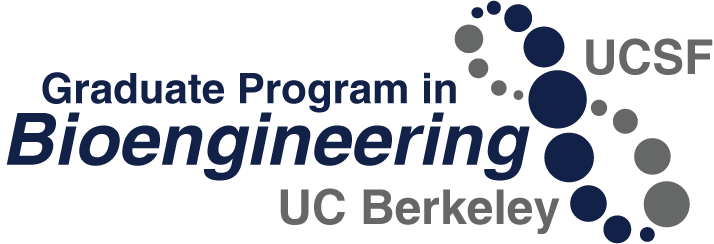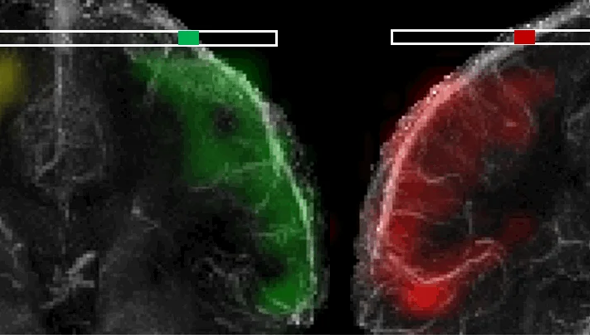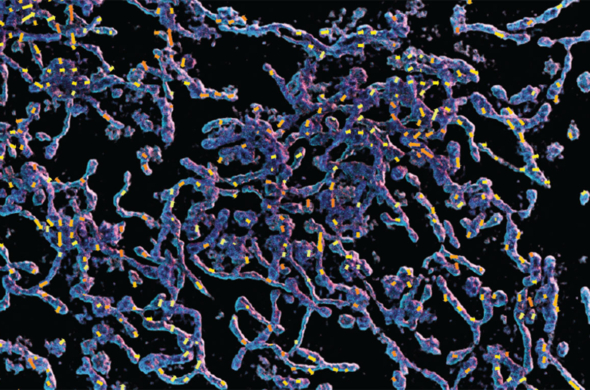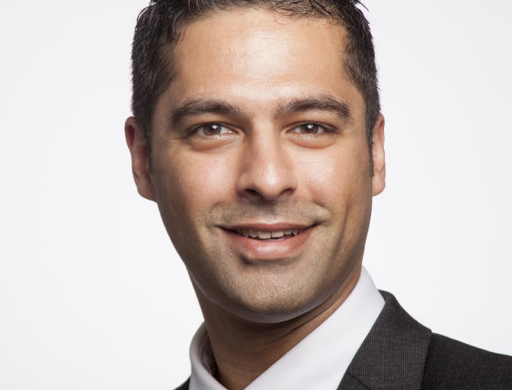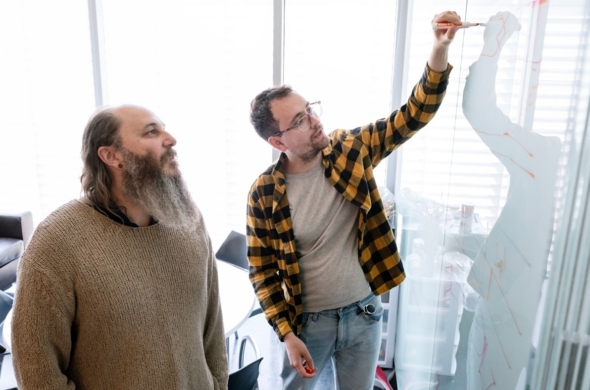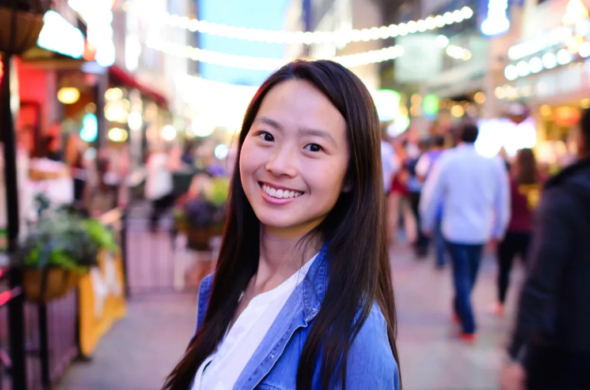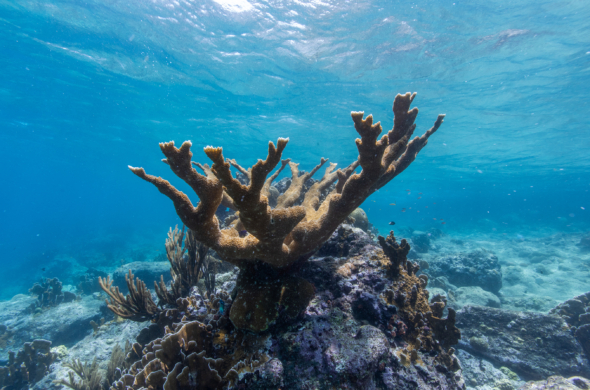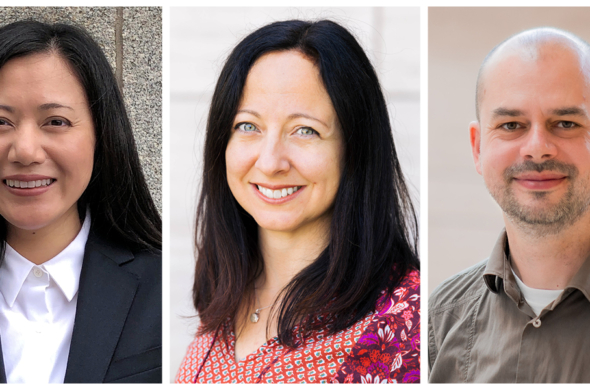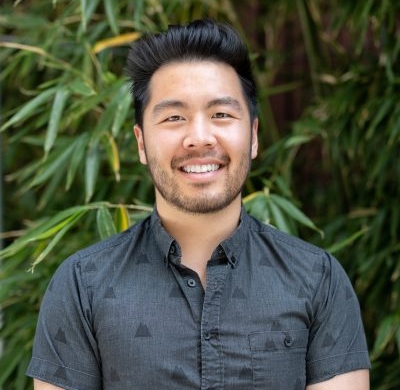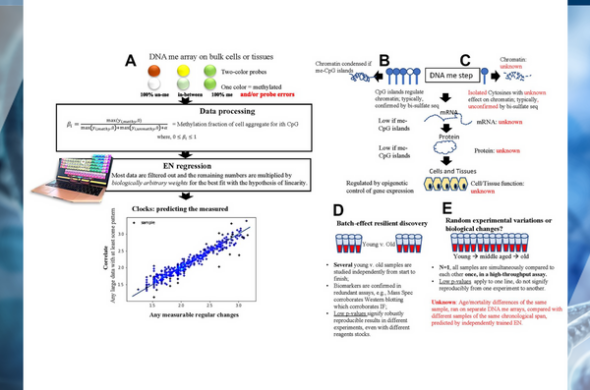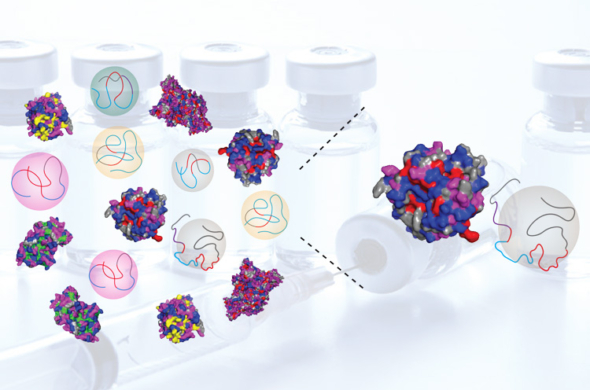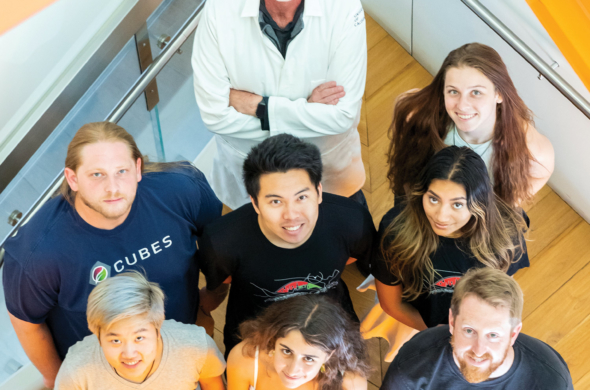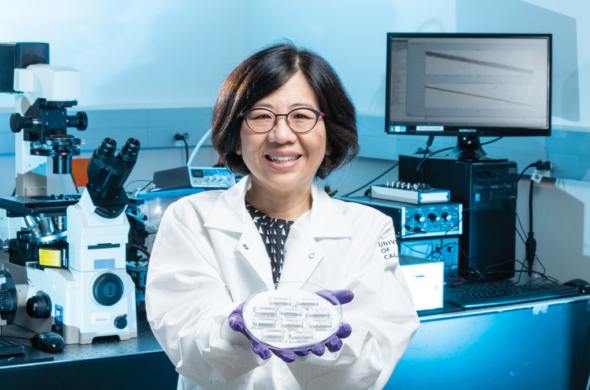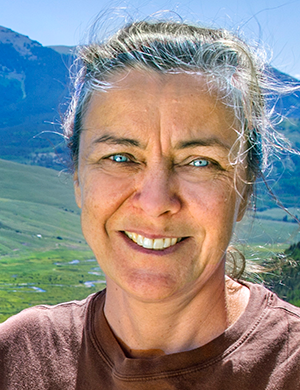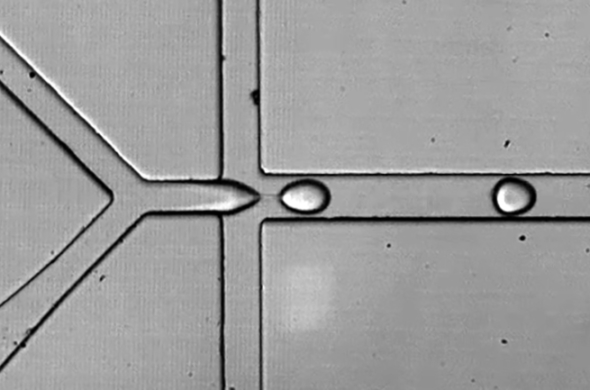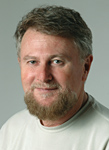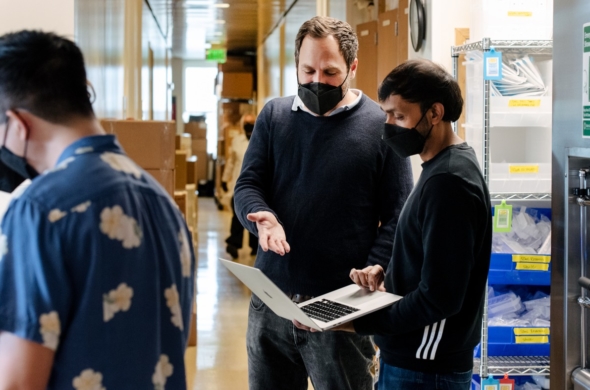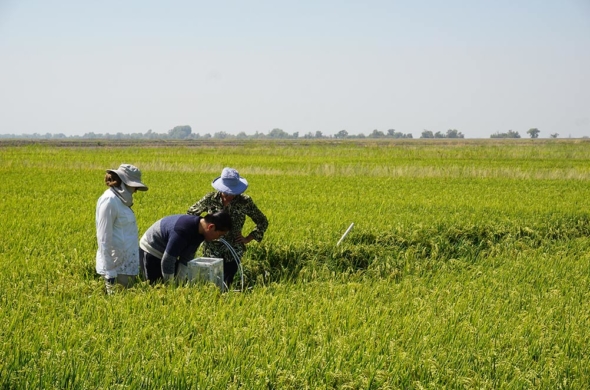Researchers led by UC Berkeley Professor Michael Lustig have developed Displacement Spectrum MRI, an innovative imaging technique that traces blood flow sources ‘in reverse’ to study brain function and disease.
Arkin and Muller Receive ARPA-H Awards
Berkeley faculty Adam Arkin and Rikky Muller have received awards of over $20 million from the Advanced Research Projects Agency for Health (ARPA-H) to pursue microbiome engineering and implantable biologic drug delivery.
Cao’s research brings new clarity to computational imaging
Research by PhD student Ruming Cao has developed a new computational imaging tool for visualizing moving samples. Led by Professor Laura Waller, the neural space-time model (NSTM) uses a small, lightweight neural network to reduce motion artifacts and solve for the motion trajectories.
Powerful New Mini Microscope Will Enable Precision Cancer Surgery
Mekhail Anwar receives up to $15 million from ARPA-H to develop a next-generation miniature scanner powerful enough to detect individual cancer cells during surgery.
New One-Step Method to Make Multiple Edits to a Cell’s Genome
Seth Shipman and his team have developed a more efficient way to make several precise edits simultaneously to human cells.
Tiny Sensor Aims to Monitor Tumors in Real Time
Researchers in Professor Mekhail Anwar’s lab have developed a prototype sensor that can monitor biological changes in the tissues of mice. The sensor may be able to monitor a patient’s response to treatment in real-time and lead to more effective, personalized treatment plans.
Bioinspired design reduces drag and noise production for towed sonar arrays
Researchers from Professor Grace Gu’s lab have demonstrated how a textured surface designed to mimic shark skin can reduce drag and mitigate flow-based noise, potentially opening the door to a new generation of more effective and efficient marine towed sonar arrays.
Rubinsky’s coral preservation work featured on PBS News
Professor Emeritus Boris Rubinsky’s isochoric vitrification method of preserving coral samples in suspended animation is part of recent emergency efforts to save dying coral reefs. The method is being used by the Smithsonian’s National Zoo and Conservation Biology Institute.
Four faculty named 2023 Highly Cited Researchers
Bioengineering graduate program core faculty Jill Banfield, Jennifer Doudna, Jay Keasling and Valerie Weaver have been named to Clarivate’s list of Highly Cited Researchers. Each researcher selected has authored multiple papers which rank in the top 1% by citations for their field(s) and publication year in the Web of Science™ over the past decade, and were further vetted for inclusion by experts in their field.
Alumni Li, Lupo and Ozhinsky Awarded $3.93M Grant to Develop Metabolic Imaging for Brain Cancer
Three bioengineering PhD alumni, all of whom are now UCSF-affiliated faculty, have been awarded a $3.93 million Translational Team Science Award from the Department of Defense. Led by Yan Li, associate professor, Janine Lupo, professor, and Eugene Ozhinsky, assistant professor of the VA Advanced Imaging Research Center, the grant will support their efforts to create new, AI-based approaches that will enable direct translation of non-invasive metabolic MR imaging methods into clinical practice.
New Paper Points the Way to Make CRISPR Safer by Avoiding Chromosome Loss
PhD student Connor Tsuchida is first author on a new paper in “Cell” from the Doudna and Ye labs, using single-cell analysis to look at chromosome loss after CRISPR-Cas9 editing using a broad range of guide RNAs. The authors suggest a protocol to prevent chromosome loss
Conboy Lab changes the measurement of biological age
Research from Professor Irina Conboy’s lab is on the cover of the journal “Aging” this week, highlighting their exciting new research in the measurement of biological age. Their work shows that commonly-used Elastic Net DNA methylation clocks have low accuracy, and present an alternative using noise-detecting cytosines, measuring the pressure of aging and disease on an organism. BioE PhD student Xiaoyue Mei is first author.
Fearing and Messersmith win 2023 Bakar Fellows Spark Awards
Congratulations to Professors Ron Fearing and Phillip Messersmith, two of seven new recipients of the 2023 Bakar Fellows Spark Award, designed to accelerate faculty-led research and produce tangible, positive societal impact through commercialization.
New Technique Could Facilitate Rapid Cryopreservation of All Coral Species
Research by Professor Emeritus Boris Rubinsky, in collaboration with Smithsonian’s National Zoo and Conservation Biology Institute (NZCBI) and Texas A&M, has achieved a breakthrough in the fight to save the world’s coral reefs from climate change annihilation. The researchers successfully cryopreserved and revived entire coral fragments, opening the door to collecting and preserving coral fragments easily and rapidly at an urgent moment for coral worldwide.
Can synthetic polymers replace the body’s natural proteins?
Ting Xu, a UC Berkeley Professor of Materials Science & Engineering, has developed a way to mimic specific functions of natural proteins using only two, four or six different building blocks — ones currently used in plastics — and found that these alternative polymers work as well as the real protein and are a lot […]
Long-term functional regeneration of radiation-damaged salivary glands
Patients battling certain forms of cancer may find their salivary glands are severely depleted after radiotherapy. UCSF professor Chelsea Bahney and collaborators have published research into neurogenic hydrogels to restore the epithelial organ structure and function that has vast implications for human patients.
Finding solutions for living on Mars — and a rapidly changing Earth
Prof Adam Arkin and the Center for the Utilization of Biological Engineering in Space are leading efforts to create zero-waste biomanufacturing systems in “Mars-like conditions”, for human futures on other worlds and our own.
How one device may help solve some of the most complex mysteries in cell biology
A microfluidic device developed by Berkeley professors Lydia Sohn and Michael Lustig may help solve some of the most complex mysteries in cell biology.
These ‘aliens’ assimilate DNA from other microbes
Prof Jill Banfield of UC Berkeley is studying Borgs, microbes that assimilate pieces of the microbes they infect in a way that looks similar to the workings of CRISPR. She suspects there may be applications of Borgs that are just as revolutionary.
Single-cell studies offer new view of how HIV infections persist
Professors Adam Abate and Iain Clark were able to analyze single cells harboring latent HIV using a technique that isolates single, infected cells as tiny amounts of blood move through their microfluidic devices. Their work was featured in Science news.
Foundational Rubinsky paper honored as 2nd most cited in ABME history
An article published by Professor Emeritus Boris Rubinsky in 2005 was the first to suggest irreversible electroporation as a potential method for minimally invasive surgical tissue ablation. Now, as the second most cited paper in ABME history, irreversible electroporation has been implemented in the clinic as an effective approach to eradicating unresectable tumors in over 50 clinical trials and has helped more than 5500 cancer patients.
Scientists Map Networks of Disease-Associated Immune Genes
Using new technologies to study thousands of genes simultaneously within immune cells, researchers led by bioengineering graduate group faculty member Alex Marson have created the most detailed map yet of how complex networks of genes function together. The new insights into how these genes relate to each other shed light on both the basic drivers of immune cell function and on immune diseases.
Supercharging Plants and Soils to Remove Carbon from the Atmosphere
A new research program at the Innovative Genomics Institute led by bioengineering graduate faculty Jill Banfield and Jennifer Doudna, supported by a $11 million commitment from the Chan Zuckerberg Initiative (CZI), seeks to use CRISPR genome editing to enhance the natural ability of plants and soil microbes to both capture and store carbon from the atmosphere.
Now fully complete, human genome reveals new secrets
Nearly 20 years after the sequencing of the human genome, a large team of researchers has finally filled in the remaining few percent of unsequenced DNA, providing the first complete, gapless human genome. First author of many of the suite of papers is Nicolas Altemose, 2021 bioengineering PhD and current postdoc with co-author Professor Aaron Streets.
